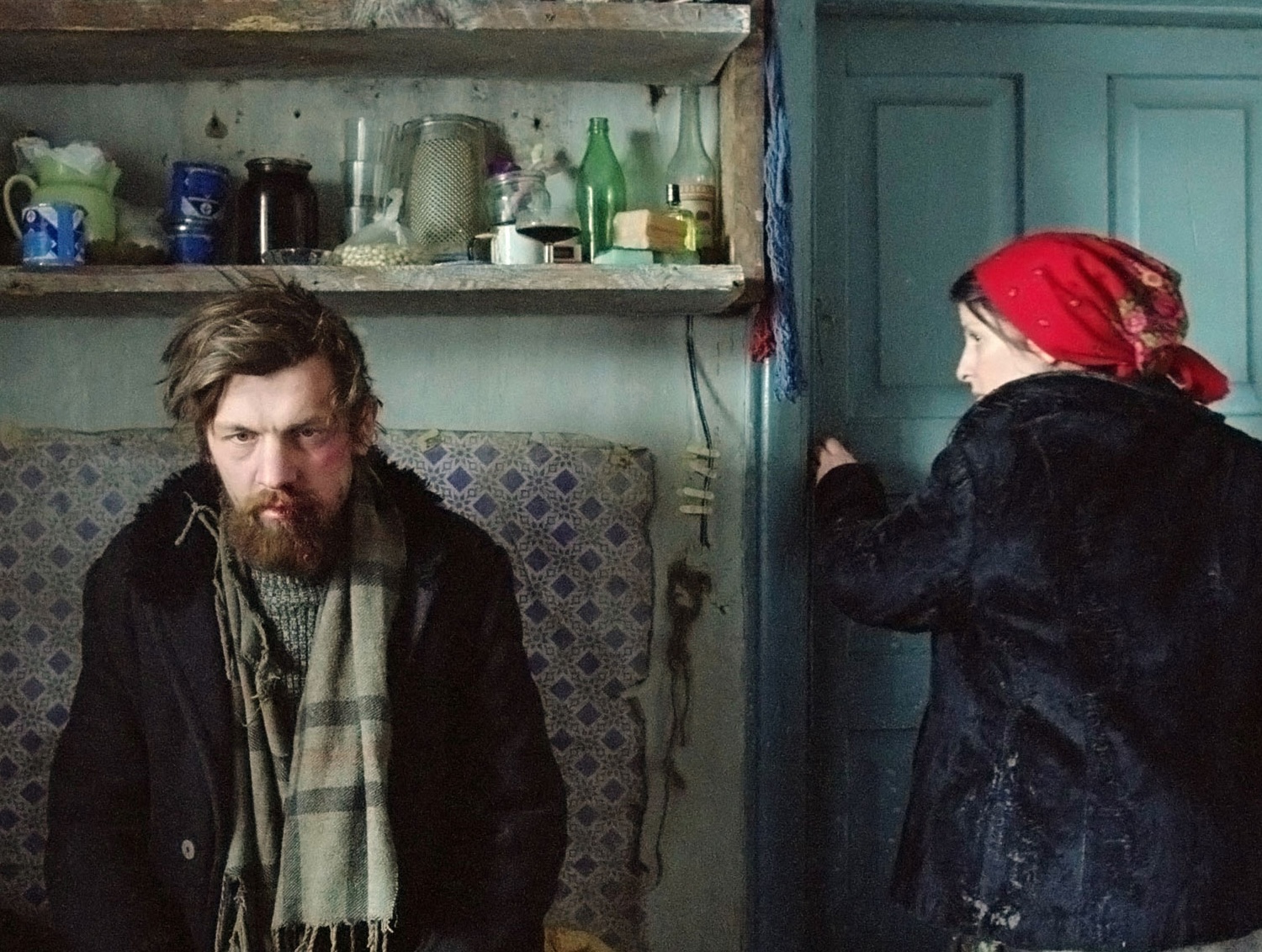
A few days in the life of truck driver Georgi, which seems to be a never-ending nightmare, a spiral of violence and abuses of power.
EN
Notebook: Your film about the Lenigrad blockade, My Joy, this new project – how do you see the relationship between history and the present?
Sergei Loznitsa: The present, the past, the future – these are all abstract ideas. The formula for time suggested by Tsiolkovsky is t=0. Time does not exist.
I'm asking because to me it seems like, in My Joy, you're showing how there's no difference between the past and the present.
That’s what I mean. Life consists of the present moment. Everything else occurs in a conceptual, abstract space, and is therefore impermanent and not reliable, both in the literal sense, and in the sense of its authenticity. The paradox is that it is only possible to see the whole by taking it apart in the form of reflections within an abstract space – but the authenticity of the whole disappears in the process. It is possible to the see the whole of a moment in other ways, but those ways are individualized and unrepeatable.
Sergei Loznitsa in conversation with Ignatiy Vishnevetsky1
- 1Ignatiy Vishnevetsky, “Time Indefinite: A Talk with Sergei Loznitsa,” MUBI Notebook, 29 September 2010.
NL
Mariska Graveland: Is My Joy gebaseerd op ware gebeurtenissen?
Sergei Loznitsa: Ik hoop dat mensen voor eens en voor altijd film en leven van elkaar zullen scheiden. Alles wat we zien op het doek is schaduwen. Je kunt uit een film geen conclusies trekken over een werkelijke situatie of de werkelijke staat van een samenleving waarin een film zich afspeelt. Ik besluit, zowel in fictie als in documentaire, welk materiaal erin komt en welk niet. Via het oog van de camera zie je iets met eigen ogen. Ik heb geen enkele zekerheid dat wat jij ziet hetzelfde is als wat ik zie. Daar ben ik blij om. Iedereen heeft andere ideeën in zijn hoofd. Alleen mensen die een dictatoriale samenleving voorstaan, denken daar anders over. Aan de andere kant ben ik natuurlijk wel bezorgd over de dingen die ik om me heen zie. Ik maakte enkele reizen door Rusland, en gebruikte de verhalen die ik hoorde of las voor mijn film. Maar My Joy is enkel en alleen gefilmd vanuit mijn eigen perspectief. Daarbij schilder ik de situatie nog wat donkerder af, ik maak hem nog wat intenser omdat ik wil dat de film een zo groot mogelijke impact heeft op de kijker. Een zachte aanpak werkt in mijn ogen niet meer, niemand voelt en begrijpt tegenwoordig subtiliteiten.
Sergei Loznitsa in gesprek met Mariska Graveland1
- 1Mariska Graveland, “Sergei Loznitsa over My Joy. Sprookje vol slechte voortekenen,” De Filmkrant, 30 juni 2011.
FR
« Il y a dans My Joy cette belle réflexivité sur le cinéma, le film pouvant être vu comme le manifeste d’un cinéma conçu en art de transmission des récits populaires, fait pour collecter les histoires des silencieux et les transfigurer en légendes. La grande force du film réside dans ce projet et sa structure d’agrégation des récits, une forme qui n’appartient qu’à lui, quelque chose de l’ordre d’une réorganisation mentale et associative. Bien sûr le danger de My Joy est d’être un film à la frontière de l’expérimentation, où il faut souvent lutter pour rester à bord. Et contrairement aux structures les plus sibyllines de Tarkovski, Lynch ou Weerasethakul qui envoûtent autant qu’elles peuvent se dérober, My Joy porte un regard peut-être trop peu empathique sur le monde, trop sombre pour qu’on s’y délasse totalement. La croyance dans l’art de raconter ne permet ici aucun retour réconciliateur à la réalité. »
Guillaume Morel1
- 1Guillaume Morel, “Road to Nowhere,” Critikat, 16 novembre 2010.

